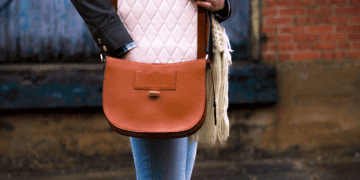The prospect of handbags and hats crafted from mushroom leather is catching the eye of luxury brands, such as Hermès. MycoWorks, a San Francisco startup, is at the forefront of this innovative trend, creating leather from mycelium, the intricate fungus network that can develop into a mushroom. The company is gearing up to launch its first large-scale manufacturing facility in South Carolina in September.
The upcoming factory is slated to produce millions of square feet of mycelium annually, with notable clients including luxury powerhouse Hermès, high-end home furnishings company Ligne Roset, and General Motors, which is exploring leather alternatives for its vehicles. According to Matt Scullin, CEO of MycoWorks, the commitments from these esteemed partners have been instrumental in bringing the factory to fruition, opening doors for the company to make a significant impact in the fashion and luxury sectors.
In a broader context, many fashion brands are embracing sustainability goals and actively seeking environmentally-friendly alternatives to conventional animal and plastic-based leather and textiles, which carry substantial carbon footprints. This drive towards sustainability has led to considerable investment in over 100 startups dedicated to developing such alternatives, as reported by the Material Innovation Initiative, an industry think tank.
In 2022, startups focused on next-generation materials secured approximately $457 million in funding. This represented a slight decrease from the previous year, partly attributed to rising interest rates. Despite this, MycoWorks’ transition to commercial-scale production is the result of years of dedicated effort and has been supported by $187 million in funding.
It is worth noting that even with MycoWorks’ substantial milestones, the new production will constitute only a fraction of the estimated 23 billion square feet of leather manufactured globally each year, primarily used in the production of footwear.
Nonetheless, the alternative-materials industry faces certain challenges. For instance, Bolt Threads, known for its alternative leather produced from mycelium with minimal plastics, suspended production this year, despite having secured high-profile partnerships with Stella McCartney and Adidas and raising over $300 million in funding since 2009. CEO Dan Widmaier stated that funding had become scarce but expressed openness to selling the technology to ensure its material reaches the market.
In contrast, some investors remain undeterred by these challenges. Ecovative, a startup specializing in mycelium-based products like bacon, textiles, and packaging, recently announced securing over $30 million in a funding round.
Anne Higonnet, an art-history professor at Barnard College in New York, who teaches a popular course on clothing and sustainability, believes that technological advancements in the fashion industry often demand significant capital and experimentation. She envisions a luxury fashion house like Hermès as an ideal pioneer for alternative leather, considering the brand’s reputation partly hinges on exclusivity.
According to Higonnet, “Hermès makes the single most desirable handbag on the planet — the Birkin — with legendary wait times. The hope is that with their approval and financing, experimental companies can slowly scale up and produce viable leather substitutes that eventually wean us off both leather and plastic simultaneously.”
Matt Scullin envisions a future where MycoWorks’ material, known as Reishi, goes beyond the luxury market. He highlights two key distinctions of Reishi: its quality and the production process, which involves cultivating mycelium sheets in small trays. He emphasizes that while sustainability is a part of their narrative, it is not the sole focus. MycoWorks recognizes the importance of not compromising on quality in the pursuit of sustainability, an approach aligned with the preferences of discerning consumers and brands alike.
Your source for supply chain report news updates: The Supply Chain Report. For international trade insights and tools, head to ADAMftd.com.
#MushroomLeather #MyceliumInnovation #LuxuryFashion #SustainableMaterials #ReishiLeather #Hermès #LigneRoset #GeneralMotors #BoltThreads #Ecovative #FashionTech #SustainabilityInFashion #AlternativeLeathers #GreenTech #EcoFriendlyFashion #LeatherAlternatives #FashionFuture #EcoInnovation #MaterialInnovation #LuxurySustainability
















